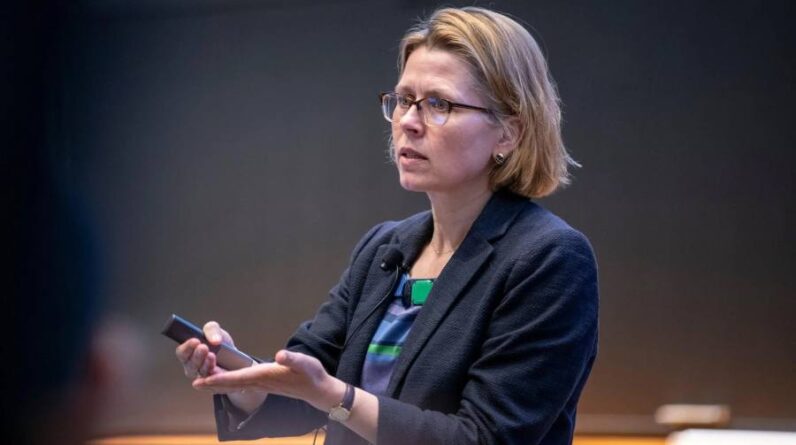
Get free updates from the European Commission
We’ll send you a myFT Daily Digest email with the latest news from the European Commission every morning.
The American economist chosen for a top job in the European Commission’s competition division has withdrawn after the appointment sparked a backlash, led by France.
Fiona Scott Morton, a former Obama administration official, has decided not to accept the post of chief competition economist, Margrethe Vestager, the EU’s executive vice-president in charge of competition, said in a tweet on Wednesday.
The decision, which Vestager said she accepted “with regret” came after French President Emmanuel Macron attacked the appointment as “extremely worrying”, saying it would be better to find a “great European” to watch over Big Tech.
France has been one of the EU member states pushing for Europe to cultivate its “strategic autonomy,” a term it uses to mean the region should not be dependent on outside powers such as the US. Paris bristled at the prospect of a former US Justice Department economist who once worked as a consultant to tech giants such as Apple and Amazon taking a sensitive position in one of the commission’s most powerful directorates.
French Europe Minister Laurence Boone, an early critic of Scott Morton’s appointment, said: “It’s not personal.” Speaking to the Financial Times, he said more transparency was needed about potential conflicts that could arise in such appointments. “The rules on conflicts of interest during and after must be clarified for these strategic positions.”
In a letter to Vestager explaining why he was stepping down, Scott Morton said: “Given the political controversy arising from the selection of a non-European to fill this position, and the importance that the Directorate General has the full support of the European Union , as he does, I have decided that the best course is for me to retire and not take up the position of Chief Economist”.
The role would have seen Scott Morton, a professor at Yale, contributing to antitrust investigations against big US companies as Brussels stepped up its crackdown on big tech. This year Vestager threatened to break up Google, in an escalation of antitrust actions against alleged anti-competitive behavior.
Some of the EU’s most senior officials spoke out against their own executive’s decision to appoint an American economist as chief economist, further escalating the issue after Macron criticized the move.
In a public rebuke of the appointment, Macron said on Tuesday that he was “doubtful” about the decision to appoint Scott Morton to the post and that it contradicted European ambitions for “strategic autonomy”.
The failure to find a suitable European candidate was an “extremely worrying” reflection on the European education system, Macron added, while saying the US would not have recruited a European for a similar role and suggesting Scott Morton would show “ineffective”. ” if she was forced to give up investigating her previous employers.
French ministers had already publicly criticized the decision last week. Pressure had also increased on Vestager within the commission, after top commissioners Thierry Breton, Josep Borrell, Paolo Gentiloni, Nicolas Schmit and Elisa Ferreira wrote a letter to Ursula von der Leyen, president of the European Commission, asking- him to reevaluate the appointment.
The leaders of the European Parliament’s four main political groups had also rebuked the commission over the appointment on Friday, asking Vestager to “review the decision”.
However, Philippe Lamberts, co-chairman of the Greens, withdrew his criticism on Sunday, saying his concerns had been addressed after he had spoken to Scott Morton. “His expertise in competition policy will help us fight excessive market power,” he said.
Prominent economists from institutions such as the London School of Economics and the European University Institute had also supported the decision to appoint Scott Morton in a letter, describing her as “one of the world’s best economists in the field of “industrial organization”.
Additional reporting by Leila Abboud in Paris
[ad_2]
Source link





